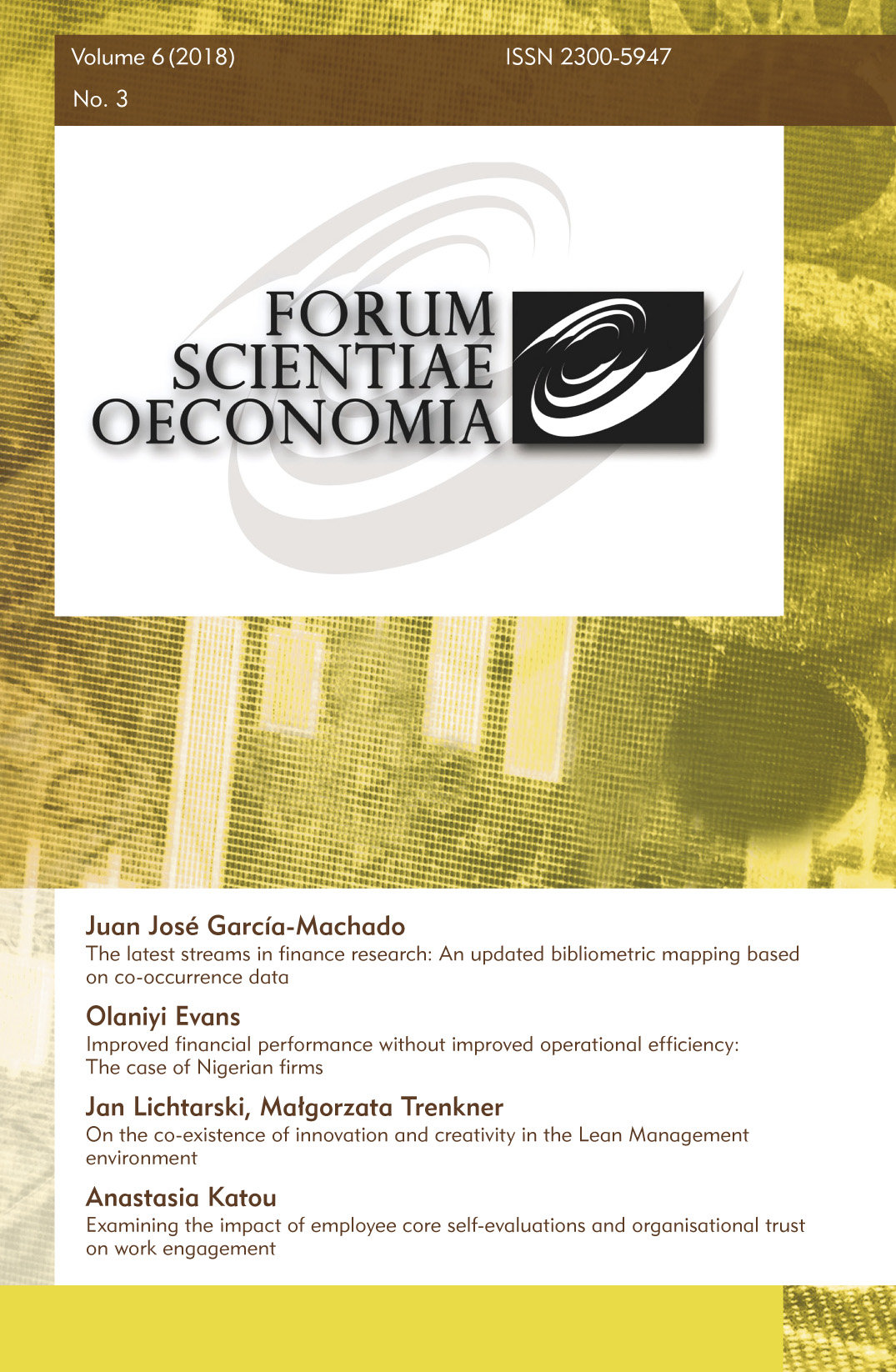Improved financial performance without improved operational efficiency:The case of Nigerian firms
Improved financial performance without improved operational efficiency: The case of Nigerian firms
Author(s): Olaniyi EvansSubject(s): Business Economy / Management
Published by: Wydawnictwo Naukowe Akademii WSB
Keywords: Financial performance;operational efficiency; profit after tax
Summary/Abstract: Is the financial performance of Nigerian companies really improving? If so, what about the operational efficiency of these firms? Though profits are on the rise, can these companies possibly be efficient, in spite of the problems inherent in the economy? In order to answer these questions, this study uses four different panel unit root tests to establish the stationarity of financial performance and operational efficiency in Nigeria, using one key performance variable(i.e. profit after tax) and three efficiency variables (i.e. return on assets ratio, asset turn ratio and portfolio activity& resilience) with a cross section of the 20 most quoted companies on the Nigerian Stock Exchange. The study shows that profit after tax is non-stationary while return on assets, portfolio activity & resilience and asset turn ratio are stationary. In other words, while financial performance(measured as profit after tax) is improving in Nigeria, operational efficiency (measured as return on assets, portfolio activity & resilience and asset turn ratio) is stagnant. What this means is that while corporate profits are on the rise, the companies are not operationally efficient.
Journal: Forum Scientiae Oeconomia
- Issue Year: 6/2018
- Issue No: 3
- Page Range: 25-41
- Page Count: 17
- Language: English

